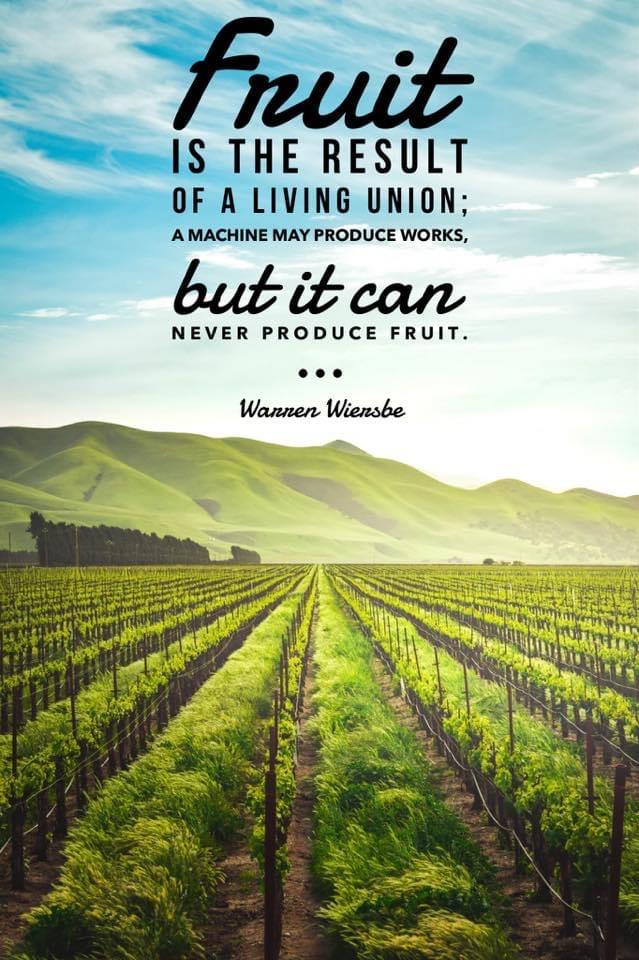Abide
“He cuts off every branch in me that bears no fruit, while every branch that does bear fruit he prunes so that it will be even more fruitful.”
John 15:2 NIV“He cares for the branches connected to me by lifting and propping up the fruitless branches and pruning every fruitful branch to yield a greater harvest.”
John 15:2 TPT
“Is it possible to be in Christ yet produce no fruit? John 15:2 may seem to say that the Vinedresser cuts off every barren branch, but we need to look more closely at the words “takes away.”
This Greek verb, airo, actually means “to lift from the ground,” “to lift so as to carry,” and “to carry off.” The translation “takes away” suggests cutting off, but in Greek literature, airo never means “cut off.” “Lifts up” or “raises” is more correct in terms of vinedressing.
In his book, Secrets of the Vine, Dr. Bruce Wilkinson has a conversation with a vineyard owner from Northern California, who says, “New branches have a natural tendency to trail down and grow along the ground, but they don’t bear fruit down there. When branches grow along the ground, the leaves get coated in dust. When it rains, they get muddy and mildewed. The branch becomes sick and useless.”
Dr. Wilkinson, thinking about John 15:2, asks, “What do you do, cut it off and throw it away?”
“Oh, no,” the vineyard owner replies, “the branch is much too valuable for that. We go through the vineyard with a bucket of water, looking for those branches. We lift them up and wash them off. Then we wrap them around the trellis or tie them up. Pretty soon, they’re thriving.”
Abiding & Bearing Fruit
Let’s look at the word rendered “takes away.” This word “airo” in Greek is generally translated “takes up” or “lifts up.” For example, the disciples “took up” or “picked up” twelve baskets of food after the feeding of the five thousand (Mt 14:20)… Simon was pressed into service to “bear” Jesus’ cross (Mt 27:32)… and John the Baptist called Jesus the Lamb of God who “takes away” the sin of the world (Jn 1:29).
In both the Bible and in Greek literature, airo never means to “cut off,” so to interpret it as such is an unfortunate rendering because of its tendency to mislead readers.
In order to develop the point Jesus is making, let’s consult with the horticulturalist and how the vinedresser tends the grapevine. Branches have a “natural tendency” to trail down and grow along the ground, but they don’t bear fruit when they are on the ground. When branches are on the ground the leaves get coated with dust and become muddied when it rains — as such, the branch becomes sick (mildewed and subject to fungus) and useless.
By the way, there is not a single plant (when left to itself) that will not run amuck on the ground and need serious pruning. Branches frequently grow to eight or ten feet long, thus merciless pruning becomes essential — branches that are not yet ready to bear fruit are then cut back close to the stem that they might prepared to do so.
It is only when everything that is not needed for fruit-bearing has relentlessly been cut back, that full, rich fruit can be expected.
But what about all of the branches that grow along the ground? What does the vinedresser do to them? Cut them branch off and throw it away? No. He goes through the vineyard with a bucket of water and those branches that are on the ground He lifts them up… washes them off… wraps them around the trellis or props them up… and pretty soon they start thriving.
Conversely, when we as Christians fall into the dirt, God doesn’t throw us away or abandon us — rather, He lifts us up… cleans us off… cleanses us from worldly things that cling to us… and helps us flourish again.”
https://www.cgg.org//index.cfm/library/weekly/id/320/vinedresser.htm
You can listen to the full message below


